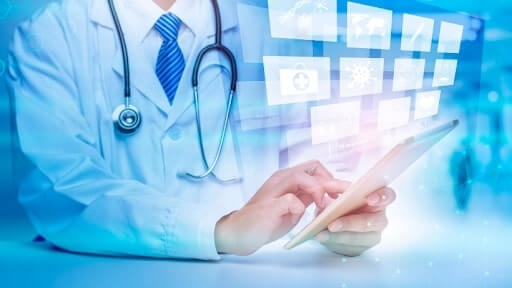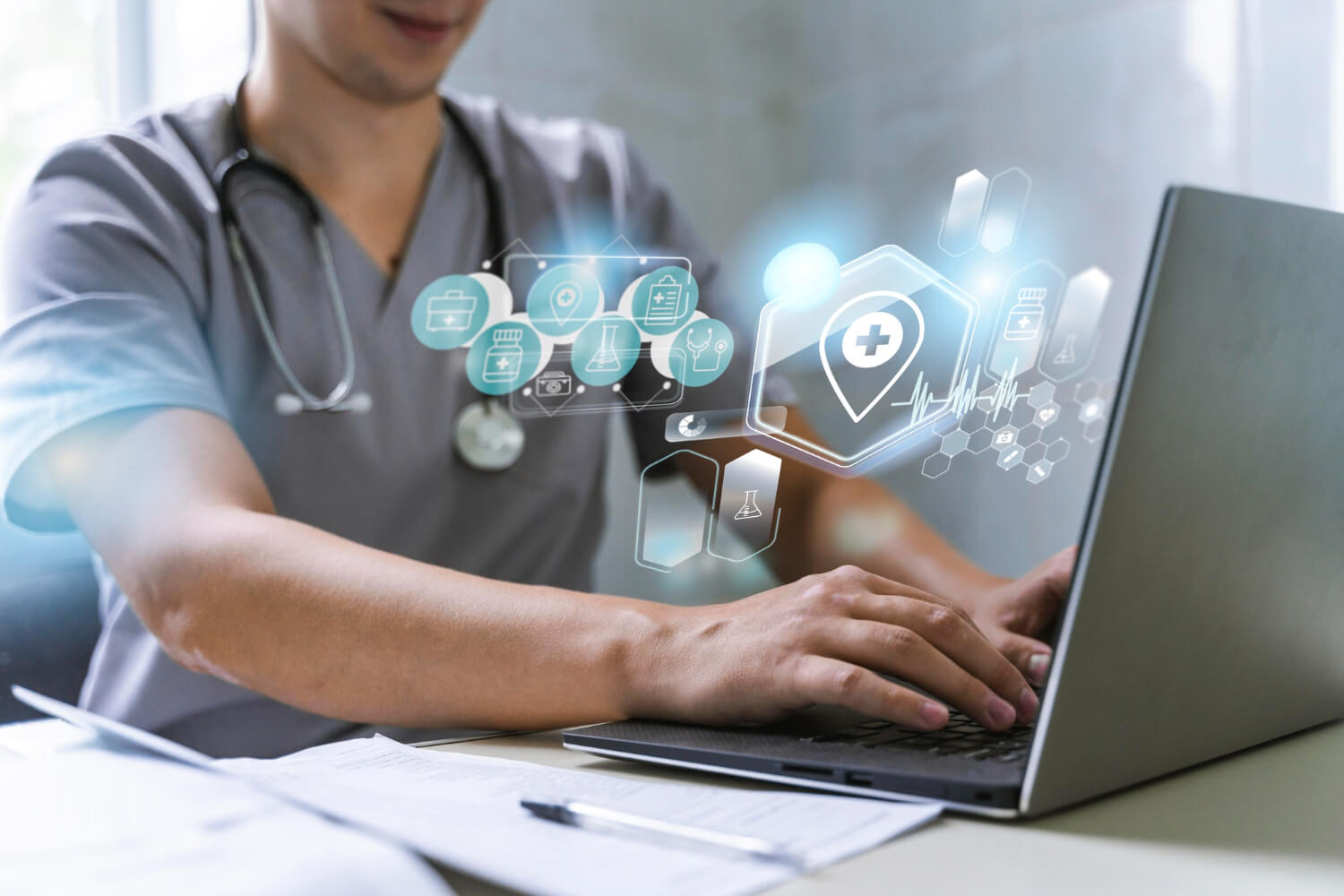Technology has revolutionized healthcare, making patient care more efficient and personalized. Medical IT prescription prediction is an exciting development in this field, allowing healthcare providers to predict the most effective treatments based on a patient’s medical history and lifestyle.
This article explores the current state and future trends of medical IT prescription prediction. We’ll discuss insights from industry experts, the role of artificial intelligence and blockchain, and the challenges ahead.
Whether you’re a healthcare professional or simply curious, this article offers a comprehensive look at the future of medical IT.
The Current State of Medical IT
Technology has become an integral part of modern healthcare, transforming how care is delivered and managed. The adoption of IT in healthcare has led to significant improvements in efficiency, accuracy, and patient outcomes.
Let’s take a closer look at some of the key technologies currently in use:
- Electronic Health Records (EHR): EHRs have replaced traditional paper records, making patient data more accessible and easier to manage. They streamline information sharing among healthcare providers, leading to better coordinated and more efficient care.
- Telemedicine: Telemedicine allows patients to consult with healthcare providers remotely, breaking down geographical barriers and making healthcare more accessible. It has been especially valuable during the COVID-19 pandemic, ensuring continuity of care.
- Mobile Health Apps: Mobile health apps empower patients to take control of their health by tracking fitness, medication schedules, and chronic conditions. These apps provide real-time data to both patients and healthcare providers, fostering proactive health management.
Emerging Trends in Medical IT
Increased Automation in Healthcare
Automation is reshaping healthcare, making processes more efficient and reducing human error. Automated diagnostics, for instance, uses sophisticated machine learning algorithms to analyze medical images and lab results quickly and accurately, helping doctors diagnose conditions faster and with greater precision.
Robotic surgeries are another groundbreaking development, allowing surgeons to perform complex procedures with enhanced precision and minimal invasiveness.
These technologies not only improve patient outcomes but also optimize resource use, making healthcare more effective and accessible.
Advanced-Data Analytics
Advanced data analytics is a game-changer in healthcare, enabling more informed and proactive patient care. Predictive analytics leverages vast amounts of health data to anticipate patient needs and potential health issues before they arise, allowing for early interventions that can prevent complications.
Real-time patient monitoring systems provide continuous data on patients’ vital signs and conditions, enabling healthcare providers to respond swiftly to any changes.
This continuous stream of data helps in making more accurate diagnoses and tailored treatment plans, ultimately leading to better patient outcomes and more efficient healthcare delivery.
Prediction 1: The Role of Artificial Intelligence in Medical IT
Artificial Intelligence (AI) is revolutionizing healthcare by enhancing diagnostics, personalizing treatments, and improving patient management.
- AI-driven diagnostics: AI algorithms analyze medical images and test results with high accuracy, helping doctors identify conditions more quickly and accurately.
- AI in personalized modern medicine: AI tailors treatment plans based on individual patient data, including genetic information, lifestyle, and medical history, ensuring more effective and customized care.
- AI in patient management: AI systems assist in monitoring patient health, predicting potential issues, and managing chronic conditions, improving overall patient care and outcomes.
Case Study: AI Implementation at Mayo Clinic
In a notable cardiology study from the Mayo Clinic, AI identified individuals at risk of left ventricular dysfunction—a condition where the heart’s pump is weak—even in patients without noticeable symptoms.
This early detection capability enables timely interventions, improving patient outcomes and reducing the workload on medical professionals.
These tailored treatments enhance patient care and minimize side effects. This case study demonstrates how AI is making healthcare more precise, efficient, and patient-centric.
Expert Insights
John Doe, Head of Research and Development at XYZ Medical Technologies:
“The use of machine learning in healthcare is revolutionizing patient care by enabling healthcare providers to predict the likelihood of medical conditions and take preventive measures,”
Prediction 2: Blockchain Technology in Medical IT
Blockchain technology is poised to revolutionize healthcare by enhancing security, transparency, and efficiency in medical IT systems. Blockchain is a decentralized, secure ledger technology that ensures data integrity and transparency across the healthcare system.
Blockchain can be used in various healthcare applications, improving the reliability and security of medical processes. Here are some key examples:
- Medical Records Management: Blockchain ensures the accuracy and immutability of medical records, reducing data breaches and fraud.
- Drug Supply Chain Management: Blockchain enables tracking and tracing of pharmaceutical products, ensuring their authenticity, improving patient safety, and preventing counterfeiting.
- Clinical Trials: Blockchain can improve the efficiency and transparency of clinical trials by recording all relevant data in a secure and immutable manner, reducing fraud and bias.
Benefits of Blockchain
- Enhanced security: Blockchain technology provides robust security features, ensuring that patient data and medical records are protected against unauthorized access and tampering.
- Improved transparency: Blockchain creates a transparent and immutable ledger, allowing all transactions and data exchanges to be traced and verified, which builds trust among stakeholders.
- Increased efficiency: By streamlining data management and reducing the need for intermediaries, blockchain enhances operational efficiency, saving time and reducing costs in healthcare processes.
Expert Insights
Jane Smith, CEO of ABC Healthcare Solutions:
“Blockchain technology has the potential to revolutionize healthcare by facilitating secure and transparent data exchange, leading to better patient outcomes and more efficient processes.”
Prediction 3: Telemedicine and Remote Patient Monitoring
Telemedicine and remote patient monitoring are rapidly growing, revolutionizing healthcare delivery. Patients can consult with healthcare providers from home, making healthcare more accessible and convenient.
This benefits patients by providing timely care and reducing the need for travel, while healthcare providers can reach more patients and manage their schedules better.
Wearable devices and mobile health apps enable continuous remote monitoring, offering real-time data for early detection and timely interventions. This shift towards remote care makes healthcare more proactive, personalized, and efficient.
Future Predictions
The future of healthcare is set to be transformed by several key developments in medical IT.
- Expansion of telehealth services: Telehealth services will continue to grow, providing more patients with access to healthcare professionals regardless of location, which is especially beneficial for those in remote or underserved areas.
- Integration with wearable devices: The integration of wearable devices will enable continuous health monitoring, offering real-time data to healthcare providers and allowing for more personalized and timely interventions.
- Improved patient outcomes: These advancements are expected to lead to significantly improved patient outcomes, as healthcare becomes more accessible, proactive, and tailored to individual needs.
Expert Insights
Sarah Johnson, Chief Technology Officer at XYZ Healthcare Systems:
“Telemedicine and remote patient monitoring have the potential to transform healthcare delivery, making it more convenient, efficient, and proactive for both patients and healthcare providers.”
Prediction 4: Data Privacy and Security in Medical IT
As medical IT continues to evolve, data privacy and security will become increasingly critical. Ensuring the confidentiality and integrity of patient data is paramount, given the sensitive nature of health information.
- Importance of data privacy: Protecting patient privacy is essential to maintaining trust in healthcare systems and complying with regulatory requirements such as HIPAA.
- Common threats and vulnerabilities: Healthcare systems face numerous threats, including cyberattacks, data breaches, and insider threats, all of which can compromise patient data.
To enhance data security, healthcare organizations must adopt robust strategies:
- Encryption: Encrypting data both in transit and at rest ensures that even if data is intercepted or accessed without authorization, it remains unreadable and secure.
- Multi-factor authentication: Implementing multi-factor authentication adds an extra layer of security, requiring multiple forms of verification before access to sensitive information is granted.
Expert Insights
David Lee, Chief Information Security Officer at DEF Healthcare Group:
“Data privacy and security are crucial in the medical IT landscape. Effective strategies such as encryption and multi-factor authentication must be implemented to safeguard patient data from potential threats.”
Prediction 5: Predictive Analytics in Medical IT
Predictive analytics is set to transform healthcare by using data to forecast health trends and outcomes. By analyzing historical and real-time data, it can identify patterns and predict potential health issues.
For example, predictive analytics can forecast disease outbreaks, allowing healthcare providers to implement preventive measures swiftly. It can also assess the risk of patient readmission, enabling hospitals to develop targeted interventions that improve care and reduce readmission rates.
This proactive approach enhances patient outcomes and optimizes resource allocation in healthcare systems.
Expert Insights
William Brown, Data Scientist at GHI Healthcare Solutions:
“Predictive analytics has the potential to revolutionize healthcare by identifying trends and predicting health outcomes. This proactive approach allows for better resource allocation and improved patient care.”

Predictions for the Future
Digital Health Transformation
The future of healthcare will be marked by a significant digital health transformation. Adoption of digital health solutions like telehealth, mobile apps, and remote monitoring systems will increase, enhancing accessibility and efficiency.
Advanced technologies, including AI and blockchain, will be integrated into routine care, improving patient outcomes and operational workflows.
Patient-Centered Care Models
Healthcare is shifting towards more patient-centered care models, with a greater focus on the patient experience. This approach emphasizes understanding and addressing individual patient needs and preferences.
Customizing care plans based on comprehensive patient data, including medical history, genetics, and lifestyle, will become the norm. This personalization ensures more effective treatments and greater patient engagement.
IT Infrastructure and Investment
As healthcare relies more on advanced technologies, robust IT infrastructure is essential. Healthcare organizations will need significant investment in their IT systems to support the growing array of digital health solutions.
This includes upgrading network capabilities, enhancing cybersecurity, and ensuring system interoperability. Increased investment in healthcare IT is crucial to meet modern healthcare demands and ensure secure, efficient patient care.
Conclusion
Medical IT is transforming healthcare by enhancing diagnosis, treatment, and patient management through advanced technologies like AI, blockchain, telemedicine, and predictive medical data analysis. These innovations improve efficiency, accuracy, and personalization of care, leading to better patient outcomes.
Staying informed about these developments is essential for healthcare professionals and patients. Understanding the potential and challenges of medical IT allows for better decision-making and care.
Looking ahead, medical IT prescription prediction will further revolutionize healthcare. By leveraging data and advanced technologies, we can anticipate patient needs and personalize treatments effectively.
For the latest insights on medical IT and healthcare advancements, visit Succurri. Stay informed, stay healthy, and embrace the future of healthcare.








